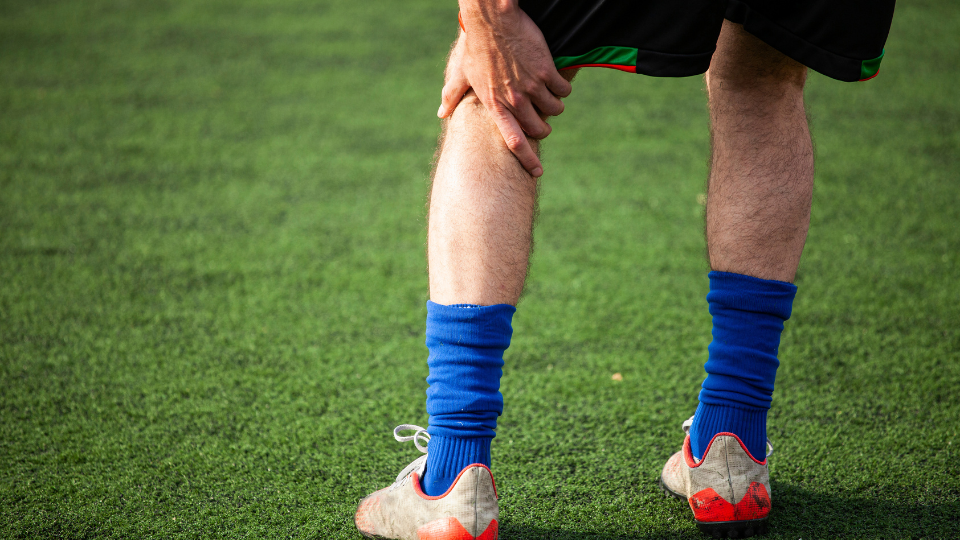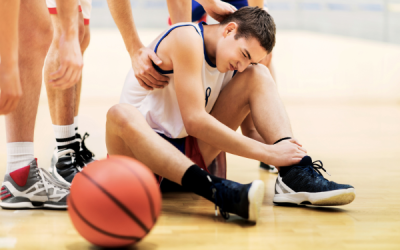Muscle cramps are a common and frustrating issue for football players, especially during the intense demands of the season. These sudden, involuntary muscle contractions can be painful and disrupt performance on the field. Fortunately, there are ways to minimize the risk of cramps and keep players moving comfortably. The more athletes know about the factors contributing to muscle cramps and take preventive steps, the better they can stay in the game and perform at their best.
Stay Hydrated
One of the leading causes of muscle cramps is dehydration. Athletes lose significant amounts of fluids during football games and practices through sweat. If these fluids are not replenished, the body can become dehydrated, leading to electrolyte imbalances that trigger cramps deep in the muscles. Football players should drink plenty of water throughout the day, not just during training sessions.
Incorporating drinks with electrolytes, such as sports beverages, can also be beneficial in replacing lost sodium, potassium, and magnesium. The goal is to maintain hydration before, during, and after activity to help muscles function properly and reduce the risk of cramping. Try to limit salty foods and sugary, caffeinated drinks like soda or coffee on game day to decrease your risk of dehydration. You’re also more likely to become dehydrated if it’s hot during training or games.
Warm-Up Properly
A thorough warm-up routine is essential for preparing the muscles for the demands of football and is one of the best ways to prevent cramps and sports injuries. Jumping straight into high-intensity activities without warming up can increase the likelihood of muscle cramps. Players should start with dynamic stretching, which involves gentle movements like leg swings and arm circles to increase muscle blood flow. This should be followed by sport-specific drills, such as light jogging or agility exercises, to activate further the muscle groups used in football. A good warm-up routine reduces the risk of cramps and helps improve overall performance.
Incorporate Regular Stretching
Maintaining muscle flexibility is essential for cramp prevention. Tight muscles are more prone to cramping, especially during sudden, explosive movements. Athletes should incorporate regular stretching routines into their training, focusing on major muscle groups used in football, such as the calves, hamstrings, quadriceps, and lower back. When the muscles are warm, stretching after practice or games can help lengthen tight muscle fibers and reduce cramping risk. Yoga or other flexibility-based exercises can also be valuable for maintaining muscle suppleness throughout the season.
Gradually Increase Training Intensity
Sudden increases in the intensity or duration of training can lead to muscle fatigue, a significant contributor to cramps. To minimize this risk, athletes should gradually build up the intensity of their workouts. This allows the body to adapt to the demands of the sport without overwhelming the muscles. Incorporating rest days into the training schedule is also essential for muscle recovery and reducing fatigue.
Expert Sports Medicine Treatment During Football Season at Tennessee Orthopaedic Alliance
If muscle cramps or other sports-related injuries persist despite these preventive measures, it may be time to seek professional care. At Tennessee Orthopaedic Alliance, our specialists can help diagnose the underlying causes of recurring cramps and other sports injuries. We offer a variety of treatment options tailored to each athlete’s needs. Our Orthopedic Urgent Care clinic provides convenient access to orthopedic care for those dealing with acute sports injuries without needing an appointment if you’re interested in speaking with one of our athletic trainers or need to be seen by an orthopedic or sports specialist, call (865) 344-5172 or book an appointment online.




